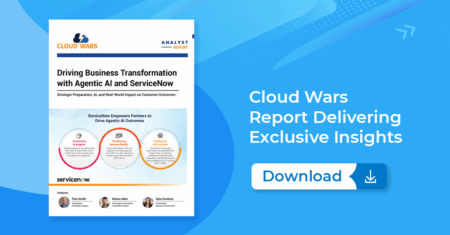
In this Data Modernization interview, Data Modernization channel host Wayne Sadin and Acceleration Economy analyst Pablo Moreno host a discussion on what data science is all about. The pair define what a data scientist is and evaluate three core questions around the value of data science:
- Why is data so important?
- What does data science add to the work traditional database administrators do?
- What’s the evolution of data and data science?
Highlights
01:21 — Why is data so important? With his experience as a CIO, Wayne explains how his role involves turning raw materials — data — into a finished product referred to as “actionable information for making decisions.”
01:50 — Because of how important data is, it requires the involvement of many professionals in the process of moving that raw material to the final product. From data engineers to data scientists, different talents contribute to different areas of turning data into actionable insights.
02:28 — As a CIO who started his career as a database administrator, Wayne reports not having much knowledge about what a data scientist is. So, Pablo goes more in-depth about what data science means.
03:11 — Database administrators and data engineers enable data scientists to access the data and extract insights from it. Pablo describes it as a form of storytelling that can bring solutions.
03:54 — What does data science add to the work that traditional database administrators and IT departments have had? It adds context to the data. By contextualizing the data, data scientists can provide insights that answers questions that drive decision-making. “A data scientist is a person who can answer questions,” defines Pablo.
04:34 — Data scientists can answer three main questions:
- What happened in the past?
- Why did it happen in the past?
- What is the most likely thing to happen in the future?
04:55 — What’s the evolution of data and data science? From his perspective as a CIO, Wayne explains that it’s about moving from systems of record to systems of engagement to systems of insights. The three Vs of data — volume, variety, and variability — are increasing in the acceleration economy. IT professionals must be able to manage the three Vs and give better insights.
05:43 — Pablo believes the future will be much faster and more volatile in terms of data generation and storage. The future need for data analysts, in terms of extracting insights, resides in stream analytics and real-time analytics — which Pablo suggests is the next big revolution in data analytics.
06:20 — Because we’re moving in the direction of acceleration and exponential growth, there’s a greater need for automation to make decisions and take action faster.
Want more insights into all things data? Visit the Data Modernization channel:










